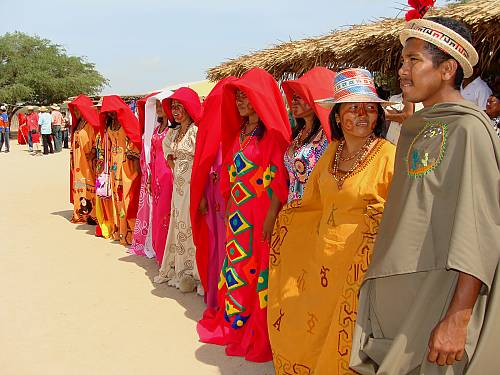9 August: UNESCO celebrates the International Day of the World’s Indigenous People
This year’s theme for the International Day of the World’s Indigenous People is “The Role of Indigenous Women in the Preservation and Transmission of Traditional Knowledge”.
Indigenous women are indeed at the forefront of safeguarding living heritage practices and traditional knowledge. They contribute to environmental protection, quality education, responsible production and other Sustainable Development Goals (SDGs) as part of the Agenda 2030. The Lists of the 2003 Convention show many examples where indigenous women play a crucial role in the safeguarding and the smooth transmission of their intangible cultural heritage (ICH) within their indigenous communities and beyond. Take a glimpse at a few examples below.

© Jérôme Tubiana

© Secretariat of State for Equality and Inclusion of Timor-Leste, 2017
In Timor-Leste, the production of Tais, a traditional textile, is a role reserved for women, who are also responsible for passing the knowledge and skills on to the next generation. >

© Yu.Boldbaatar, 2013

© 2006 A. Ríos / Secretaría de Turismo del Estado de Míchoacán.
Pictured here is Mrs Genoveva Alejo with her granddaughter, harvesting pomegranates in Carapan, Mexico. Indigenous Women transmits the traditional Mexican cuisine and unique farming methods to younger generations, encouraging sustainable development. >

© J. Uñalivia/NCCA-IHC, 2008

© Ministry of Culture of Peru, 2018
The Awajún people of northern Peru view pottery as an example of their harmonious relationship with nature. The main bearers of the Awajún pottery knowledge, lore and traditions are the Dukúg wisewomen, female elders who pass the practice on to other women in their families. >

© Ministry of Education, Arts and Culture, Namibia, 2018
UNESCO celebrates the role of indigenous women across the world. For more information on 2003 Convention and indigenous peoples, visit our dedicated webpage.
